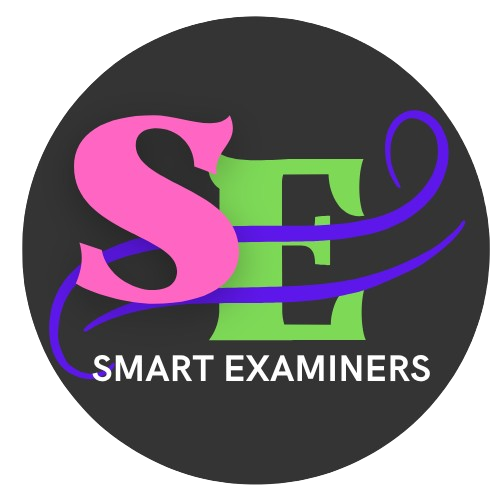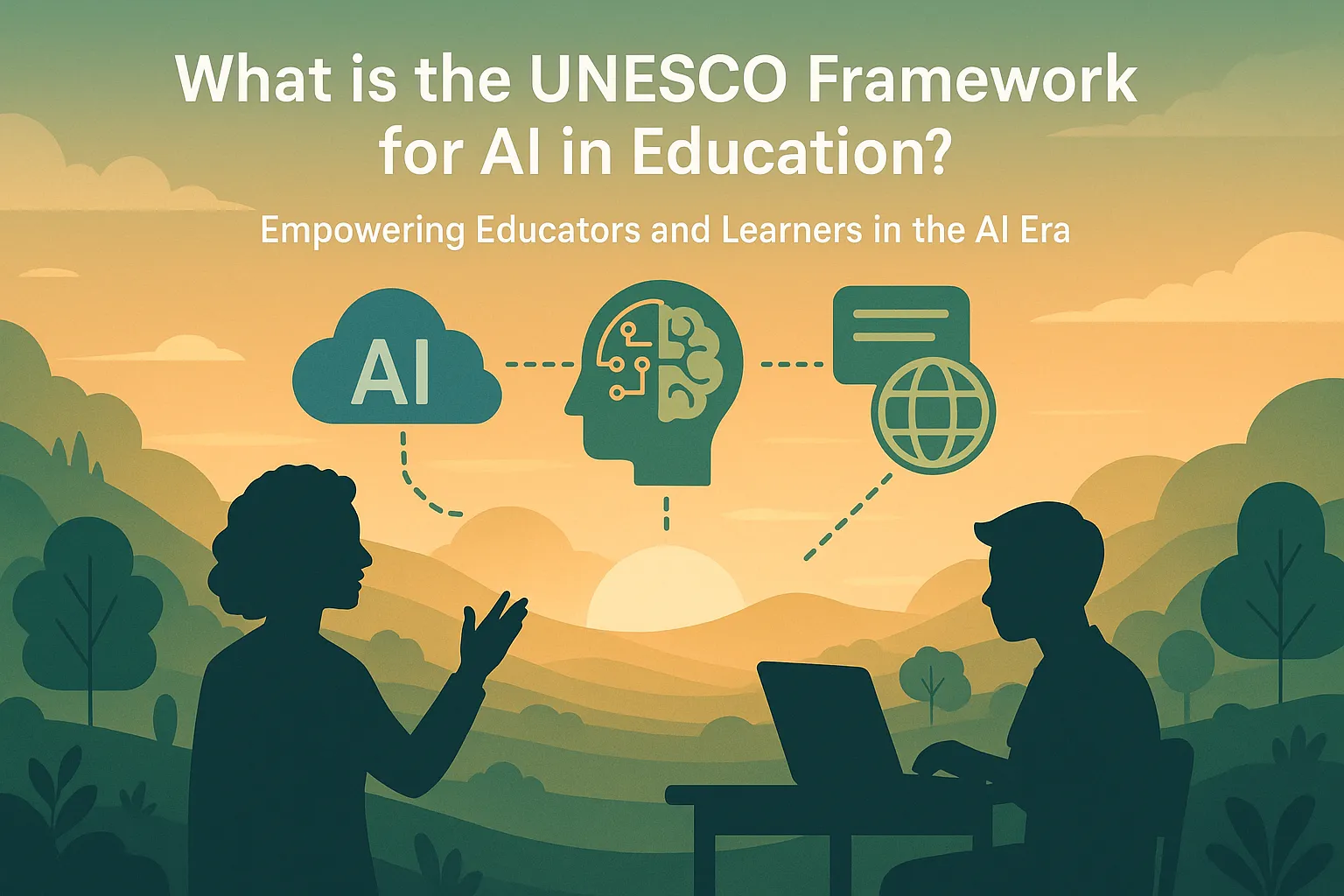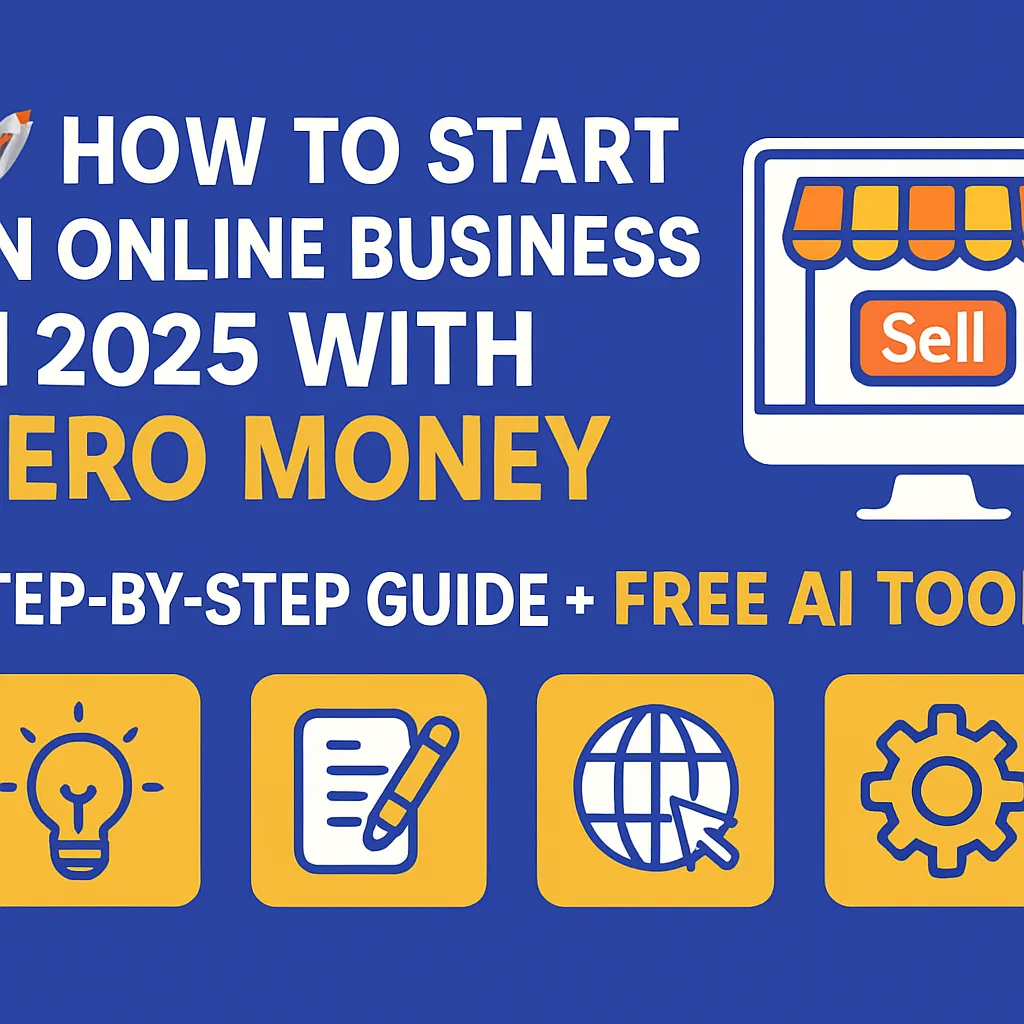🌍 What is the UNESCO Framework for AI in Education?
Empowering Educators and Learners in the AI Era
📘 Introduction
Artificial Intelligence (AI) is revolutionizing every corner of our lives — and education is no exception. From adaptive learning platforms to automated grading systems, AI is helping redefine how we teach and learn. But as this transformation accelerates, there's an urgent need to ensure that these technologies are used responsibly, inclusively, and ethically.
Enter the UNESCO Framework for AI in Education — a globally recognized structure developed to guide educational institutions, governments, and technology partners in harnessing AI to support human-centered learning. This framework is designed to equip both teachers and students with the skills, values, and mindsets necessary to thrive in an AI-driven world.
In this comprehensive post, we’ll explore:
- 📚 What the UNESCO AI Competency Frameworks are all about
- 🧠 How they impact students and teachers
- 🌐 Why they matter globally
- 🔧 How platforms like SmartExaminers are leading the way in implementing AI-aligned assessments
🧠 Understanding the UNESCO AI Competency Frameworks
🎓 Framework for Students
The AI Competency Framework for Students by UNESCO provides a structured roadmap for integrating AI-related knowledge, skills, and attitudes into school curricula. The ultimate aim? Equip students to be not just consumers of AI — but ethical creators, analysts, and decision-makers in an AI-enabled future.
✅ Key Dimensions
-
🤝 Human-Centered Mindset
Develop awareness about how AI affects people and society — and the importance of putting humans first in AI design and usage. -
⚖️ Ethics of AI
Understand fairness, accountability, bias, transparency, and the long-term impacts of AI technologies. -
🔍 AI Techniques & Applications
Learn the core principles behind how AI works, including machine learning, neural networks, and data-driven decision-making. -
💡 AI System Design
Empower students to design basic AI systems, apply logical thinking, and explore real-world challenges.
📈 Competency Levels
- Understand: Basic literacy in AI, its uses, and implications.
- Apply: Practical use of AI tools and systems.
- Create: Build and innovate using AI technologies.
🧑🏫 Framework for Teachers
The AI Competency Framework for Teachers recognizes that teachers play a critical role in modeling ethical use of technology and integrating AI into learning environments.
✅ Key Dimensions
-
👩🏫 Human-Centered Mindset
Foster student agency and responsible use of AI in the classroom. -
⚖️ Ethics of AI
Recognize and address algorithmic bias, privacy concerns, and misuse of data. -
💾 AI Foundations & Applications
Understand foundational AI tools and how they can be leveraged in educational contexts. -
🧑🏫 AI Pedagogy
Incorporate AI tools and platforms (like chatbots or adaptive learning systems) into teaching strategies. -
📚 AI for Professional Learning
Use AI to support continuous teacher development (e.g., identifying learning gaps, customizing PD paths).
📈 Competency Levels
- Acquire: Learn the basics and begin exploring tools.
- Deepen: Build expertise and confidence in integrating AI.
- Create: Lead the design of AI-rich learning environments.
🌐 Global Importance & Implementation
UNESCO’s frameworks are already influencing national policies, curriculum reforms, and teacher training programs around the world. Here’s why:
- 🌍 Universal Guidance: Provides a common language for AI education.
- ⚖️ Ethical Safeguards: Emphasizes fairness, inclusivity, and data privacy.
- 🔁 Lifelong Learning: Prepares both youth and adults for continuous evolution in the job market.
- 📊 Policy Integration: Helps ministries of education shape AI policies with a clear roadmap.
Governments in Africa, Asia, Europe, and Latin America are now referencing these frameworks to reform teacher training colleges, curriculum standards, and even examination systems.
🚀 How SmartExaminers Brings the UNESCO Framework to Life
One of the biggest challenges with any framework is implementation — and that’s where SmartExaminers shines.
🔧 What is SmartExaminers?
SmartExaminers is a powerful AI-driven educational platform that helps schools, teachers, and curriculum developers generate:
- 📝 Curriculum-Aligned Exams
- 🧠 AI-Powered Model Answers
- 🧾 Marking Schemes & Grading Rubrics
- 🎯 Personalized Feedback
🎯 How SmartExaminers Supports the UNESCO AI Framework
| UNESCO Objective | SmartExaminers Feature |
|---|---|
| ✅ Human-Centered AI | Exam content that highlights human values |
| ⚖️ Ethical AI Integration | AI-generated questions that teach ethics |
| 💡 System Design & Creativity | Open-ended AI design tasks |
| 📚 AI Pedagogy for Teachers | Professional exam templates for teachers |
With SmartExaminers, educators can:
- 🎓 Generate mock exams that directly align with AI competencies
- 🧑🏫 Reduce exam-setting workload via automation
- 💬 Provide detailed, standards-based feedback in seconds
- 📊 Analyze learner responses and tailor future instruction
Whether you teach ICT, Science, Humanities, or Math, SmartExaminers supports CBC, 8-4-4, and other national systems.
🧩 Sample AI-Integrated Questions via SmartExaminers
Here are sample questions you could generate with SmartExaminers, in line with UNESCO’s AI frameworks:
🧠 For Students
AI & Ethics (Grade 10)
"Explain why it is important for AI developers to reduce bias in datasets. Give two real-life examples of what could happen if bias is ignored."System Design (Grade 12)
"Design a simple AI system that helps farmers detect crop diseases using photos. Explain what data you need and how the system would work."
👩🏫 For Teachers (PD Focus)
"Reflect on how you’ve used AI tools like Grammarly, ChatGPT, or Google’s AI tutor in your teaching. What are the benefits and risks?"
"Create a short multiple-choice assessment on AI ethics. Use SmartExaminers to auto-generate answers and marking scheme."
📌 Challenges in Implementing the UNESCO Framework
While the framework is strong, implementation still faces hurdles:
- ⚠️ Limited teacher training on AI
- 🖥️ Digital infrastructure gaps in developing nations
- 🧾 Lack of localized content for AI topics
- ❌ Data privacy concerns
Platforms like SmartExaminers help bridge these gaps by:
- 🧑🏫 Offering easy-to-use AI tools for teachers with no coding background
- 🌍 Supporting regional and curriculum-specific needs
- 🔐 Ensuring privacy through secure data storage and ethical algorithms
🌟 Future of AI in Education: What’s Next?
The next 5–10 years will see:
- 🧠 AI integrated into core subjects — not just ICT
- 🧑🏫 Teachers as AI mentors, not just content deliverers
- 🌐 Global collaboration on AI ethics, education, and policies
- 🤖 More AI platforms like SmartExaminers helping scale assessments
📚 Resources
- UNESCO AI Competency Framework for Students
- UNESCO AI Competency Framework for Teachers
- SmartExaminers Official Site
✅ Final Thoughts
The UNESCO Framework for AI in Education isn’t just a policy document — it’s a call to action. It’s about preparing humans to thrive in an AI world, not the other way around.
With tools like SmartExaminers, we can bring these frameworks from theory to reality — turning curriculum goals into classroom success.
So whether you're a teacher, policymaker, or edtech enthusiast — the future of AI in education starts with you.
🔍 Start aligning with the future — today.
 SmartExaminers
SmartExaminers


